South Africa’s online dating scene is shifting in 2026 as users move away from endless swiping toward niche apps focused on values, safety, and real connection.
TomTom Bandit review: solid camera, marvellous app
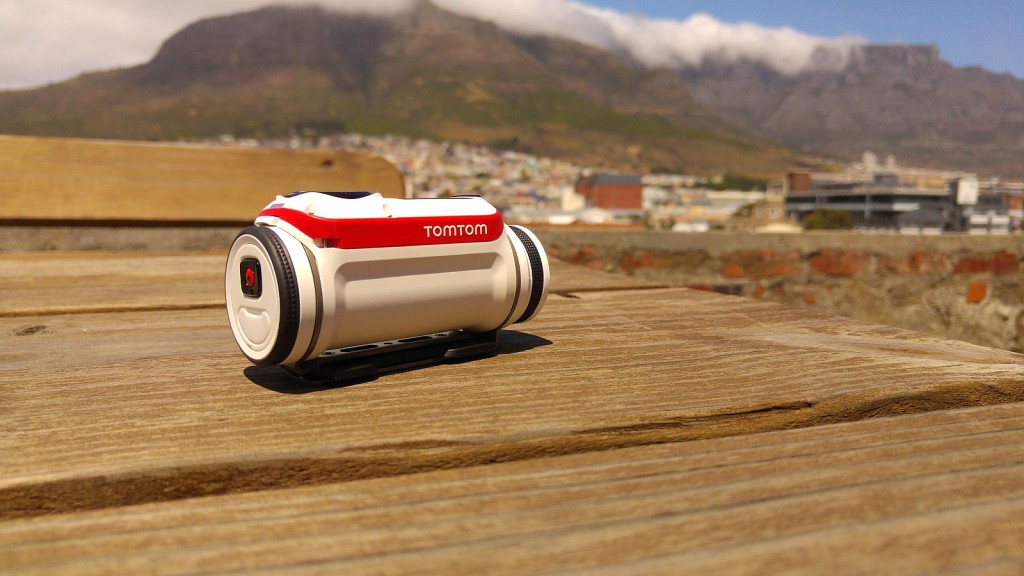
The TomTom Bandit is one of those disruptive devices, not largely because it’s doing anything revolutionary in the smart camera space, but it provides an adequate alternative to the GoPro range. And that’s a godsend for consumers.
It’s also something fresh, and different, and that’s a good thing too, but perhaps that’s not enough to defeat GoPro’s immense marketing budget. TomTom at least acknowledges this, and arms its camera with a bevy of extremely useful tools, software wizardry and design decisions.
Essentially, the TomTom Bandit tries to beat its competitors by rectifying others’ shortcomings.
I previously had a go with the Bandit at the Cape Town launch a month ago, and while it did impress in the short term, it also annoyed. But I’ll get into this later.
For now, what the consumer should know is that there are two distinct packages of the Bandit. One is the entry level kit as we’ll call it and includes the camera and not much else. That’s R5799. The more wholesome package retails for R6799 and includes a host of accessories that you’d probably want when using this thing. It’s a bit cruel of TomTom to do this, but it’s understandable.
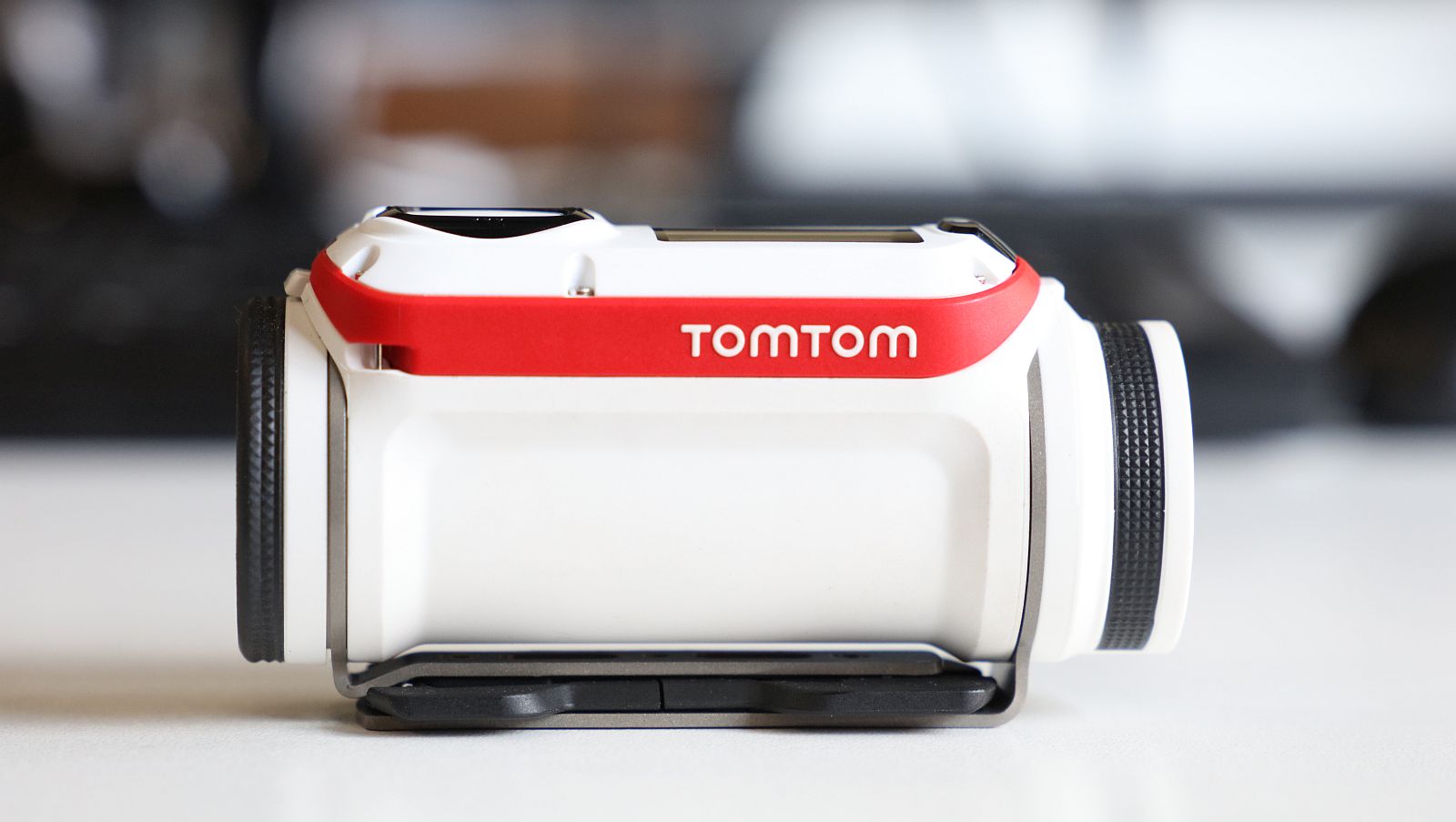
If you’re just purchasing the first package though, there’s a fair deal to be happy and excited about.
Some interesting design decisions are apparent from the get go, with the battery mounted as a separate USB connection within the camera itself. To charge it, a simple click and slide gets the bulk of the camera out, and it slots into practically any smartphone charger. Rather awkwardly, the company called it the Batt-Stick, but we won’t give them too much grief for that.
Overall, the exterior design is clean and unassuming, with a white and red colour profile in typical TomTom style. The lens is large and dominates the front of the device, and can be swapped out for a waterproof unit on a whim. That’s right folks, it doesn’t need a special little enclosure to jump in the pool with you, just a new lens cover.
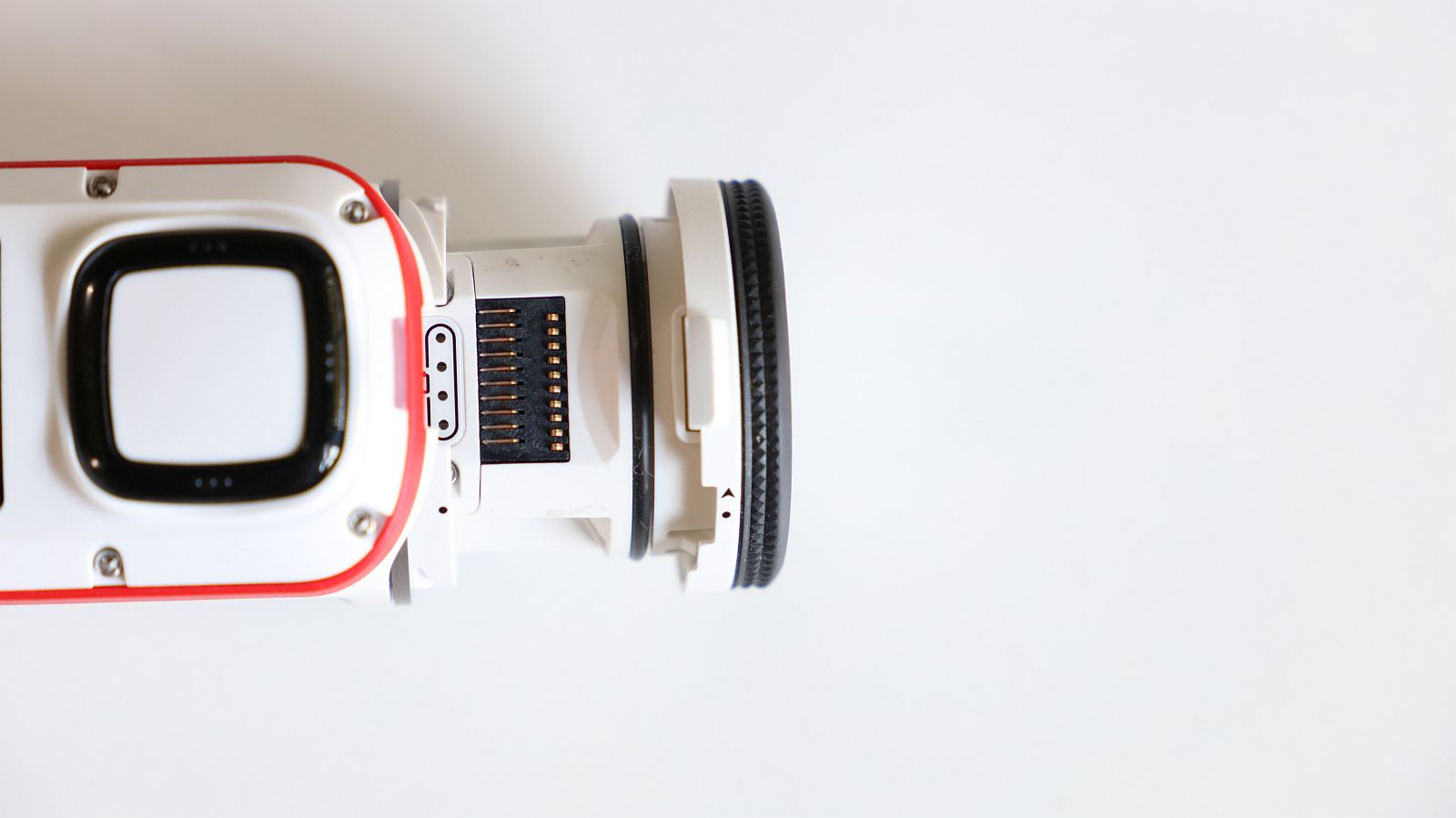
Generally though, the camera’s a little larger than most. It’s also fairly hefty, tipping the scales at close to 200g. And thanks to those two anomalies and its submarine-like shape, it doesn’t exactly give the user too many mounting options. There’s a clever clasp foot mechanism too and a rotating ratchet system for making button access easier when the camera’s stuck to a helmet, for instance.
With more technical specs in mind, the TomTom Bandit features a 16MP camera sensor with a wide-angle lens which promises video recording in 1080p at up to 60fps and 4K cinematic recording at around 15 frames per second.
Video quality can’t be faulted with 1080p/60fps looking as good as any action camera I’ve used before. Low light performance lacks a tad, and still images could benefit from an autofocusing system. 4K performance, thanks to the low fps rate, isn’t something that’ll work well for action footage too, but is perfect for recording lazy sunsets or other generally slow-moving phenomena. Like a sloth scaling a tree, perhaps.
And I should mention my woes at the camera’s launch. I struggled to pair the device with my phone, and more annoying was the onboard menu system.
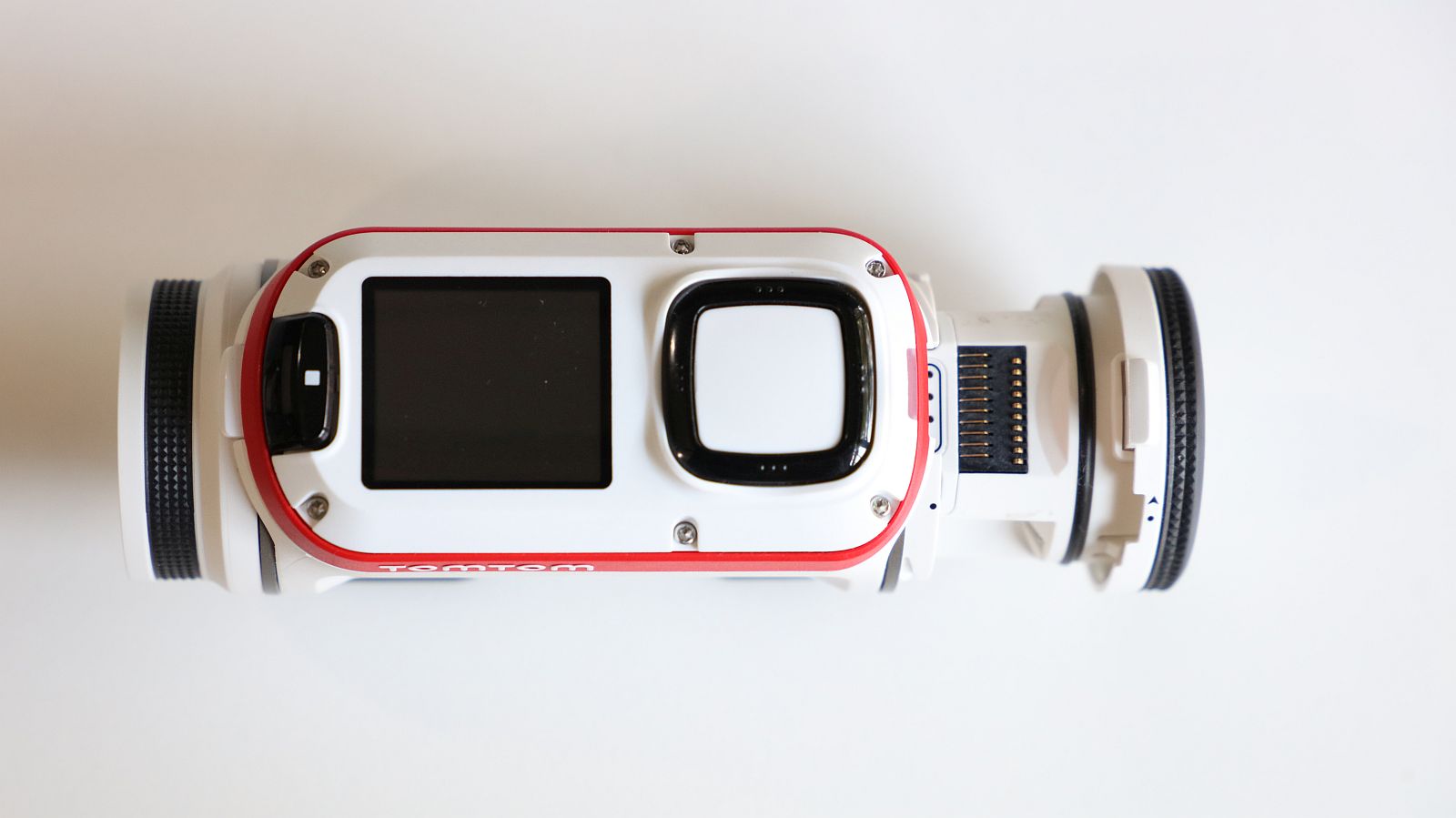
You’ll take a fair amount of time setting up the Bandit, especially while glossing through the menus — which were terribly confusing at the best of times — and figuring out the six-button system. There’s a D-pad and a master record/pause button at the back of the camera, while up front, there’s a stop clacker.
Once everything is set up, the TomTom Bandit really does just work. The buttons aren’t really needed either if you are going to use the TomTom Bandit app. And it’s really the app that’s the star of the show.
While it had its initial hiccups with me at the launch, when given a little more time with the camera my LG G4 connected to the Bandit flawlessly via WiFi. There’s no Bluetooth connections here, but I’m not completely sure why. Still, it works fairly well if you are planning to use one device and one device alone to act as the Bandit’s anchor. Connecting via WiFi does disable your phone’s internet connection with any other WiFi devices, including routers. In order to upload images via WiFi, you need to download the images, disconnect from the camera and then upload.
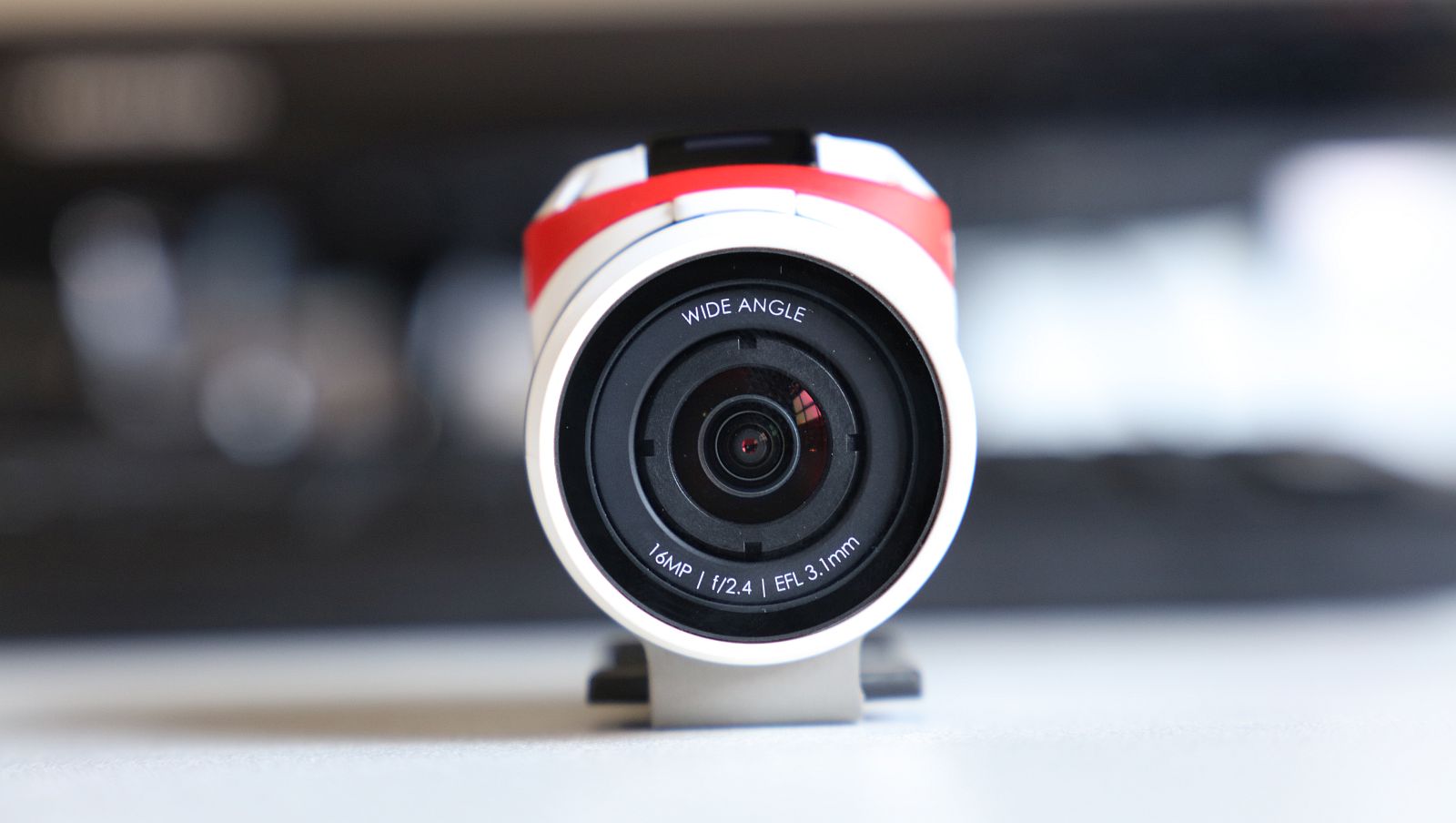
Besides this, the app allows users to adjust and monitor practically everything about the Bandit, from video recording mode, to battery life and storage capacity. But it’s real triumph is the built-in video editor. It’s easily the most practical piece of software I’ve used this year.
While recording video, the camera also records biometric and environment data, including the user’s heart rate (this requires a TomTom heart rate or fitness tracker), elevation changes, and de- or acceleration. With these parameters, the software marks out what it deems important moments in the reel. You can use these to make a quick and simple video by simply selecting the said moments and shaking the phone, turning said moments into a minute long action video.
It sounds gimmicky and is a bit weird at first, but it’s phenomenal how well it works, especially for those who couldn’t be bothered to edit an entire reel of footage.
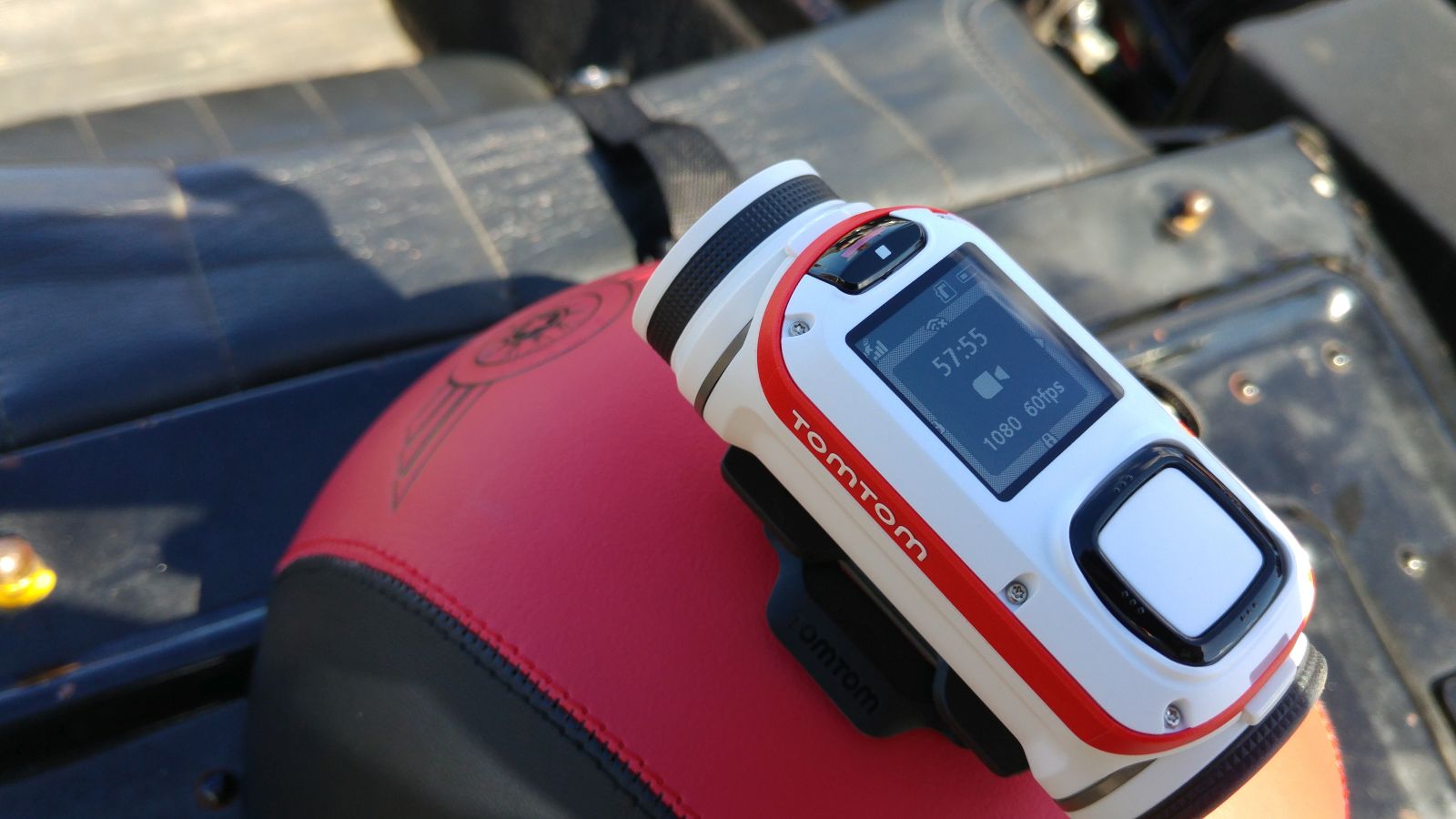
That was TomTom’s primary goal here as well: to beat other action cameras at the editing-on-the-fly game, and it succeeds emphatically.
When exporting video from the Bandit to my phone, the former did get rather warm. I’m not too sure how the hardware and built in media server handles the video editing wirelessly, but I didn’t notice any stutters in this regard. The app did freeze momentarily while processing the final video, but it was only for about ten seconds.
And with heat output generally means power consumption. The claimed three hours is a bit of a myth for the Bandit, and I can confirm this with my second unit. I’d say that it’s closer to 2.5-hours, even when the camera isn’t actively recording anything. Thanks to the daring battery design as well, there’s no way to bolt an external battery onto the Bandit if you’re looking to record-while-charging. It’s possibly its biggest flaw.
Overall though, the Bandit pushes boundaries that the GoPro range has failed to explore and that’s its real hallmark. The app is the best lines of code I’ve used all year, and the camera itself records a bevy of video formats admirably and without much fuss after all is set up.
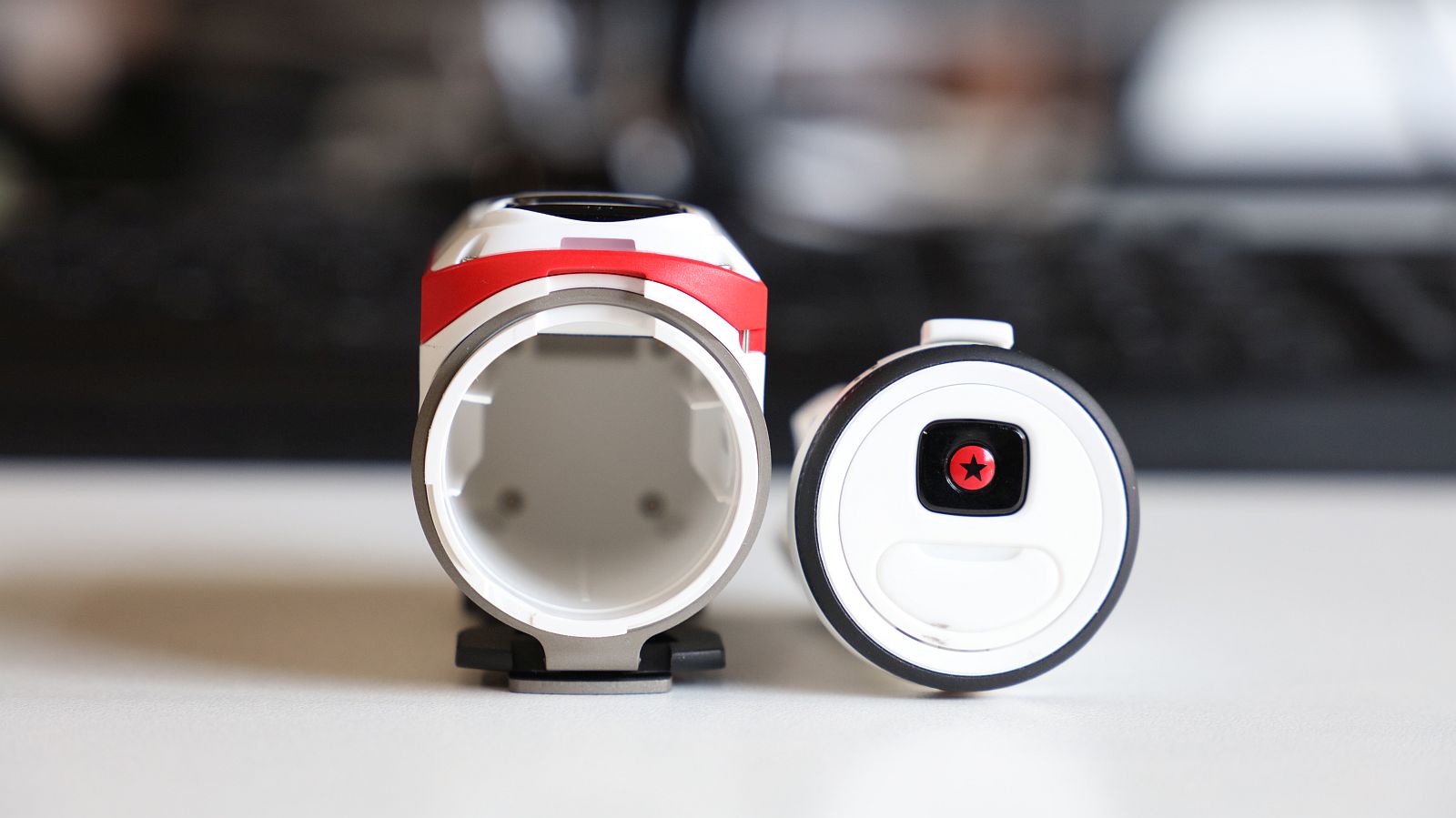
However, for R5799, it’s not exactly an entry level camera and competes directly with the GoPro HERO4 Silver price-wise. Considering that it does play nicely with GoPro accessories is a nice little addition too, but you really don’t get all that much, besides the camera itelf, for your money.
What you will get however is a camera that’s brilliant at what it does, and an app that’ll make video editing fun again.
But the question is, can TomTom’s unique features sway consumer’s GoPro-centric mindset?
Verdict: You know, it’s not often that a gadget comes along and rips up the rule book, but the TomTom Bandit does exactly that. It’s a beautiful mesh of hardware and software, and should serve its user adequately, especially for those who absolutely hate sifting through hours of footage. But is R5799 a little steep? I definitely think so.
Score: 7.5/10


